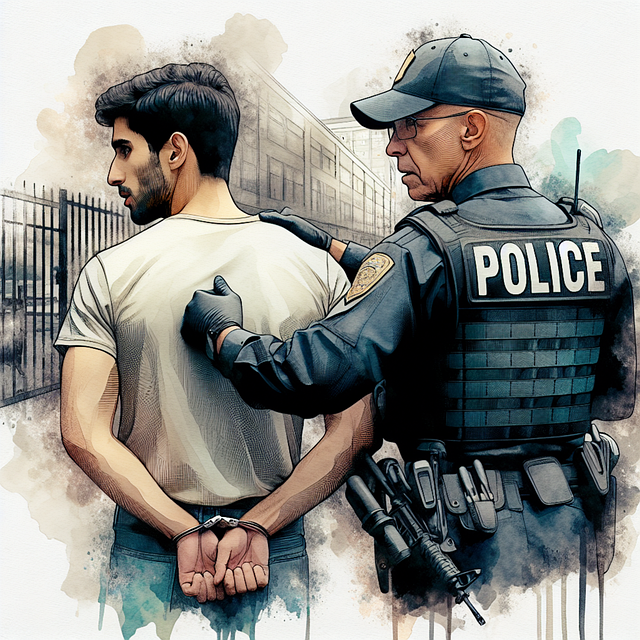Zero-tolerance policies on college campuses regarding alcohol and drugs clash with legal rights during DUI stops. Students must know their rights to remain silent, refuse tests, and consult an attorney to protect against false accusations. Balancing campus safety and individual freedoms is key; awareness and open dialogue empower students to assert constitutional rights while upholding public safety and civil liberties.
“College campuses, once havens for academic exploration, now face a delicate balance between fostering a safe environment and upholding individual freedoms. This is particularly evident in zero-tolerance policies, especially during DUI (Driving Under the Influence) traffic stops. With students’ rights at stake, understanding these policies is paramount.
This article explores the nuances of zero-tolerance approaches, delving into student rights during DUI stops, the importance of balancing safety and freedoms, and effective campus security measures that respect individual liberties.”
- Understanding Zero Tolerance Policies on Campus
- Rights of Students During DUI Traffic Stops
- Balancing Safety and Individual Freedoms
- Implementing Effective Campus Security Measures
Understanding Zero Tolerance Policies on Campus

Zero Tolerance policies on college campuses have gained significant attention due to their strict nature in addressing disciplinary issues, especially involving alcohol and drug use. These policies aim to maintain a safe learning environment by implementing severe consequences for violations, often leaving little room for discretion. Students are expected to be aware of these rules, which can include immediate expulsion or suspension for offenses like underage drinking or possession of controlled substances.
In the context of DUI (Driving Under the Influence) traffic stops, understanding zero-tolerance policies is crucial. Students facing such charges may have their rights during these stops, but the policy’s strictness could lead to swift campus disciplinary action regardless of the legal outcome. This intertwining of campus and legal systems requires students to be proactive in understanding their rights and the potential implications on their academic future.
Rights of Students During DUI Traffic Stops

When a student is involved in a DUI (Driving Under the Influence) traffic stop, their rights are as crucial as ensuring public safety. Students have the right to remain silent; this means they can choose not to answer any questions related to alcohol consumption or provide a blood or breath sample. Refusing these requests doesn’t automatically lead to penalties, but it’s important for students to understand the potential consequences. They also have the right to an attorney during such stops, allowing them legal counsel even if they can’t afford one typically. This is a significant protection against any false accusations or excessive punishment.
Furthermore, students should be aware that while law enforcement officers may have specific protocols and training for DUI stops, they are still bound by constitutional protections. This includes the Fourth Amendment, which safeguards against unreasonable searches and seizures. Students can assert their rights politely but firmly, ensuring they understand their legal standing during these encounters. Knowing their rights empowers students to navigate such situations more confidently while upholding their due process.
Balancing Safety and Individual Freedoms

College campuses across the nation have been implementing Zero Tolerance policies, aiming to ensure safety and security on their premises. While these measures often include strict rules and rapid response protocols, there’s a delicate balance to be struck between maintaining order and preserving individual freedoms. This is especially crucial when considering rights during DUI traffic stops on campus. Students, like all citizens, possess certain legal protections, such as the right against unreasonable searches and seizures, which must be respected even in high-security environments.
Navigating this equilibrium requires a nuanced approach. Campus authorities must educate both students and staff about their entitlements during potential legal interactions. For instance, understanding that during a DUI stop, individuals have the right to remain silent and to consult with an attorney can empower students to assert their constitutional rights. By fostering awareness and promoting open dialogue, colleges can uphold public safety while also upholding the civil liberties that are integral to a democratic society, including rights during DUI traffic stops.
Implementing Effective Campus Security Measures

College campuses, in an effort to ensure safety and maintain a secure environment for students, have been adopting zero-tolerance policies for various issues, including campus violence and drug-related incidents. However, balancing security with individual rights remains a delicate task. One critical aspect is implementing effective security measures while respecting the rights of students during DUI (Driving Under the Influence) traffic stops.
These measures include enhancing surveillance systems, increasing patrols, and improving communication networks to promptly respond to potential threats. Additionally, campus authorities should be adequately trained in handling sensitive situations, especially when dealing with individuals under the influence, ensuring a safe and respectful interaction. By combining robust security protocols and mindful approach to student rights, college campuses can foster an environment that is both secure and conducive to academic growth.
While zero-tolerance policies aim to maintain a safe learning environment, it’s crucial to balance these measures with student rights, especially during DUI traffic stops. By implementing effective campus security protocols that prioritize communication, transparency, and respect for due process, colleges can ensure both the safety of their communities and the protection of individual freedoms. Understanding and upholding the rights of students during these critical interactions is essential in fostering a supportive academic atmosphere.






